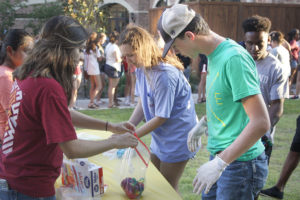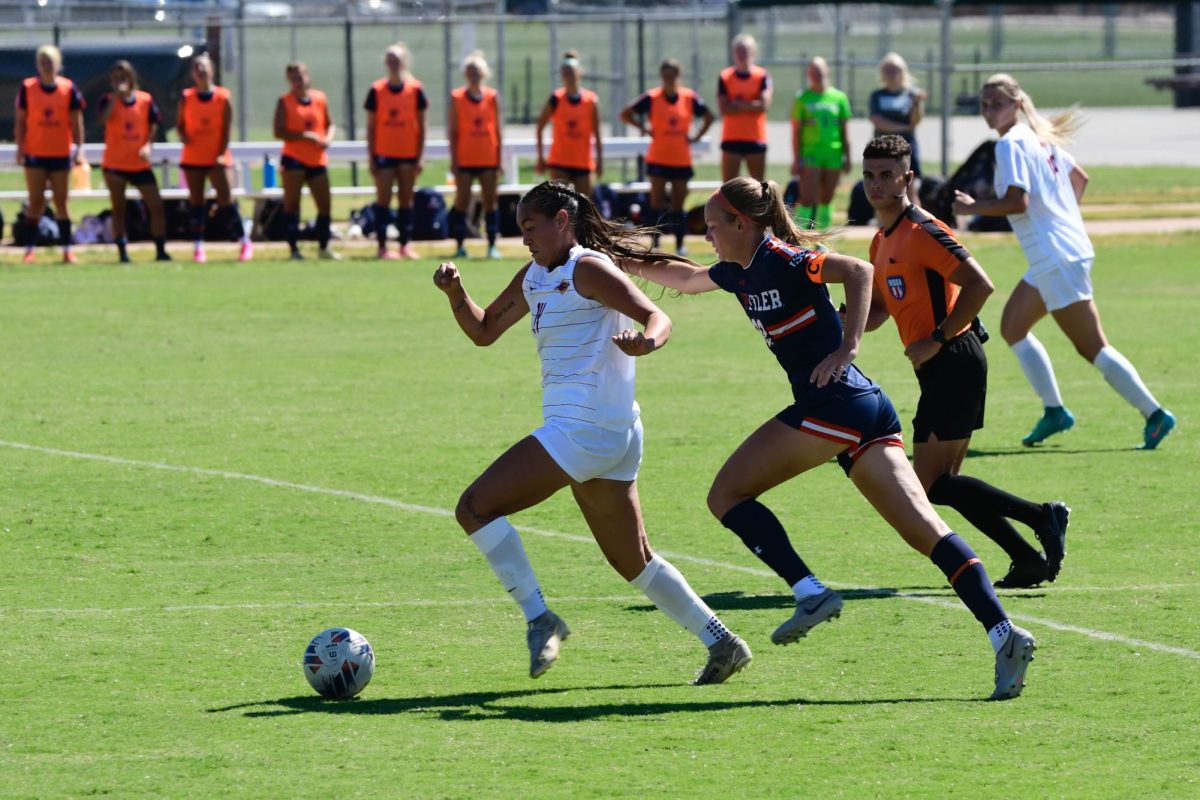
A redneck can be identified by their camouflage shirts, boots, cowboy belts, or by their Southern drawl and hospitality. However, these characteristics can also stereotype a redneck.
The well-known definition, which came into common usage in the ‘30s, stems from farmers whose necks have been burned by the sun during their hours of outdoor labor.
Jeff Foxworthy, a famous comedian and redneck, sold twice as many as records as white-collar comedians, such as Steve Martin or Richard Pryor, setting the record for the most comedy recordings sold in history in 2007.
“I would definitely consider myself to be a redneck, but my definition of the term is just a way to describe someone who is in touch with their roots of where they come from, and that is often a small country town,” Michael Clayton, early education freshman, said.
Rednecks live in rural settings and are known for their love of pickup trucks and country lifestyle.
“I’m not kidding when I say I don’t need much, but my buddies and my pickup on a back road just driving around,” Clayton said. “It’s the simple things that make me happy because that is the way I was raised.”
The term “redneck” has been dated back to the 1800s as way to describe a set group of people, though its meaning has shifted through the years.
In todays society, a redneck, refers to southern white people who are often uneducated, poor or of low social standing; similarly, the term has also been used to poke fun at people who live an excessive country lifestyle.
“Being a redneck means living a fantastic life that keeps you connected and learning to appreciate the nature around you. That includes taking pride in the animals we harvest and the land I preserve,” Jared Sharp, 2017 mechanical engineering graduate, said. “It allows me to put meat in the freezer and provide for myself all year, and taking joy in the simple things like relaxing by a bonfire.”
The commonplace for the redneck custom, even when researching the specific definition online, is the idea that all rednecks are often an uneducated group of people.
“The majority of rednecks I know are extremely intelligent. I know at least 15 rednecks who graduated college with engineering degrees,” Sharp said. “If that doesn’t prove the stigma wrong, then I don’t know what would.”
Famous rednecks include comedians Larry the Cable Guy, Phil Robertson and Bill Engvall, who are all college graduates.
The stereotype is completely backwards. Rednecks are very educated but usually in different aspects of life,” Zack McMahen, criminal justice junior, said. “We are able to adapt well to new situations and learn as we go.”
During the ‘70s, the redneck became a widely popular lifestyle in the fashion industry, and brought fame to the lifestyle with the help of the 1981 movie “Urban Cowboy”.
The movie brought a trend across America that introduced southern drawls, cowboy boots and country-fried food from Hollywood into the homes of Americans across the country.
“I find it interesting that people sometimes use the word ‘redneck’ as a degrading term, yet glorify popular rednecks like the Robertson family from ‘Duck Dynasty’ or Larry the Cable Guy,” Clayton said.
People consider rednecks to be known for their southern hospitality however, the common consensus also considers rednecks to be racist, due to a southern origin.
“It’s not that we are racists, it’s just that we don’t care about offending anyone because we are not easily offended ourselves,” Sharp said. “But we are also the type to give you the shirt off our backs if you needed it.”
Activities that are strongly associated with redneck people include hunting and fishing, as well as farming.
“Because I’m a country boy, I can kill or catch all the meat I need for a year, as well as keep a garden to provide my own vegetables,” McMahen said.
Despite the popular, though occasionally negative, connotation that is associated with being a redneck, the lifestyle is continually changing and becoming more accepted by society due to its acceptance of famous rednecks.
“It’s fun being a redneck because you get to shoot animals, go mudding, dip and spit and yell ‘Yee yee’ whenever you want,” Clayton said. “To me, it’s not only a term to explain my lifestyle. It’s just a way of life.”
![]()
RELATED STORIES:
- The slow transition to becoming a Hispanic serving institution
- Ethnicity’s role in multicultural sororities
- Baptist Student Ministry members discuss discrimination in religious organizations
- LGBTQ: avoiding the trigger point
- Students fate uncertain pending a possible end to DACA
- Priddy Scholars brings new opportunities to first year students
- Girls choose their sorority based on fit, regardless of skin tone
- ADA compliance still an issue on campus with older buildings
- Greeks prey to stereotypes; still a ‘necessity’
- A 21st Century look at Discrimination
- Global enrollment continues to grow thanks to university’s outreach program
- Office becomes home to new director and students
- A brotherhood bond is broken by Kappa Alpha
- Senate Bill 4 changes the way officials handle immigration












